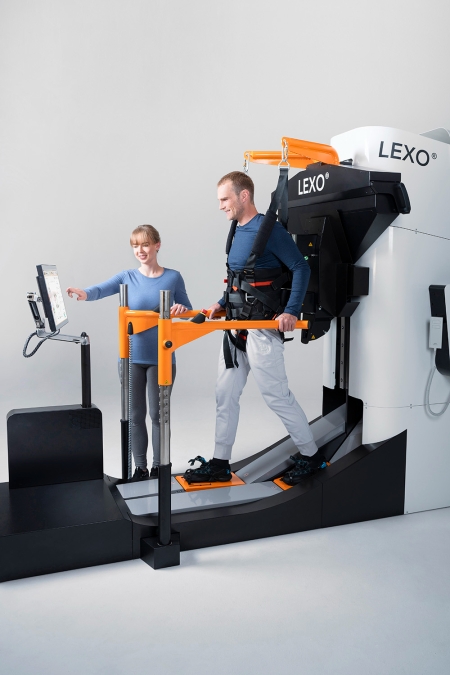
This development, funded by the Fred and Ann Green Legacy and DBTH Charity, will introduce cutting-edge equipment to improve rehabilitation for patients at the Mexborough site’s Rehabilitation Centre and those receiving care at home.
The Fred and Ann Green Legacy was established in 1998 following the passing of Fred Stanley Green, a retired pork butcher from Mexborough, who generously bequeathed £11.5 million to benefit the local community through investment is services at, what was then, the Doncaster Royal and Montagu Hospital NHS Trust.
This latest investment, combined with additional staffing, will significantly enhance the hospital’s stroke and rehabilitation services, increasing capacity and improving care.
The Tyromotion Robotic Rehabilitation Suite, the first of its kind in the NHS, will be introduced, offering tools to aid mobility, limb functionality, and cognitive recovery.
Among the devices is the Fesia Grasp glove, an advanced functional electrical stimulation (FES) tool that enhances hand motor recovery through high-tech electrodes linked to a tablet for precise and rapid therapy.
Other equipment includes a robotic gait trainer to improve walking, a balance trainer, and devices designed to restore strength and coordination in both upper and lower limbs.
Additionally, a horizontal tablet will focus on motor and cognitive skill recovery through gamified therapy, and a limb-assessment device will track and report on patient progress.
These state-of-the-art tools will help Montagu Hospital work towards providing rehabilitation services seven days a week, addressing growing demand. Over time, the enhanced service is expected to support patients from a wider area, establishing the hospital as a hub of excellence in South Yorkshire for stroke care.
Stroke is one of the leading causes of disability in the UK, with one in four people expected to experience a stroke in their lifetime. Survivors often face significant challenges, and research shows that greater therapy intensity can improve outcomes, particularly in mobility and limb functionality. DBTH’s investment in robotic rehabilitation devices will enable stroke patients to engage in supervised, repetitive exercises essential for optimal recovery.
Dr Peter Anderton, Consultant for the Stroke Rehabilitation Service, said: “These devices act as therapy multipliers, not replacements. They allow us to offer patients significantly more opportunities for recovery, amplifying the impact of traditional rehabilitation techniques by increasing intensity while maintaining the critical role of clinical staff in guiding therapy using clinical judgement and experience.”
The service is also expanding its facilities with a dedicated gym to house the advanced machines, alongside additional therapy assistants who will provide personalised support to patients.
In November, the team introduced a two-year music therapy pilot to complement these advancements. This innovative approach uses the brain’s plasticity to aid speech, cognition, and motor recovery while also offering vital psychological support for stroke survivors, helping them adjust to the life-changing effects of the condition.
In addition to these developments, DBTH continues to pioneer other stroke initiatives. The Trust was recently selected to take part in a national pilot programme offering genetic testing for stroke patients, aimed at identifying underlying hereditary factors and improving personalised care. This programme further cements DBTH’s role as a leader in advancing stroke treatment and rehabilitation in the region.
For more information about these advancements and how DBTH Charity supports projects like this, visit: www.dbthcharity.co.uk.